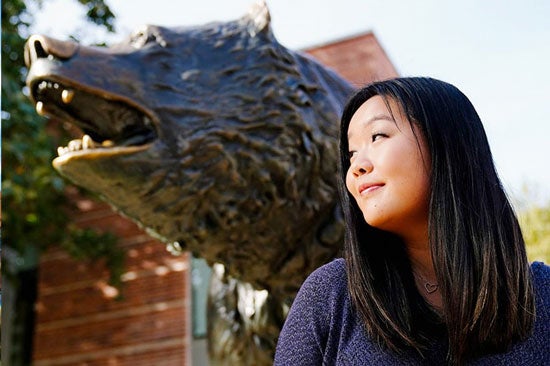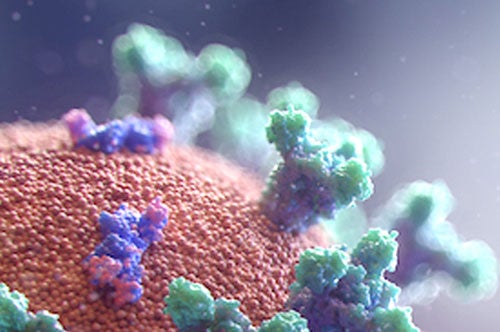
Mental health and social well-being during the pandemic
To the Campus Community:
Each of you is a valued member of the Bruin family, and we want to ensure you have information to help you maintain your health and well-being during this difficult time. We also want to acknowledge the challenges you face while continuing your work and studies virtually, often in situations and locations that are not as conducive to the level of excellence to which you are accustomed.
We hope the following guidance and tips will help you adjust to the new environments in which you are working and studying.
Where to get trusted information regarding COVID-19
- Browse smartly. Manage your information channels. Try to avoid news and information overload and fatigue by balancing news sources. If you find yourself checking the news multiple times a day, take a break and do something else.
- Get credible information from trusted websites. Information from good, trusted sources here at UCLA and the University of California is available through our dedicated COVID-19 website, Bruins Safe Online, UCLA Health, the University of California and the Semel Healthy Campus Initiative (HCI) Center. We also recommend the World Health Organization (PDF) and the Centers for Disease Control and Prevention websites for further information.
Tips for transitioning to online teaching, learning and working
- Establish a routine. Try to establish some normalcy and a regular sleep-wake cycle while working from home. Eat, sleep, work and exercise at regular times each day if possible. Get outside every day and catch some fresh air and sunshine, while maintaining a safe distance from others. Create a routine that works for you — doing so can boost spirits and create a sense of normalcy.
- Check in with each other. Faculty can designate class time to check in with students and have students check in with each other. Please review these tips from UCLA Counseling and Psychological Services (CAPS) for other ways faculty can support students.
- Keep physical distance, reduce “social distance.” Ask someone you work with, teach or learn from at UCLA how they are coping with the safer at home orders. Share how you are coping and listen to their experiences with empathy — put yourself in their shoes.
- Monitor screen time. Balance your time online with other activities such as cooking, art, craft projects, making or playing music, reading books, calling friends or family, writing poetry, cleaning and organizing, and getting outside to walk, run or bike. If you feel overwhelmed with online meetings, it is OK to turn off the screen and do something else. Broaden your view by looking at the horizon at sunset, or gaze at stars. Check out tips for keeping busy and connected and ideas for at-home activities.
- Reach out on your own behalf. You are your own best advocate. Make sure your basic needs are met. If you are experiencing any disruption in basic needs for food, housing, phone service, or physical or mental health service, find the resources on campus to help. This is a time of enormous and sudden change, so feelings of anxiety, sadness, disappointment, lack of concentration or motivation are normal and expected. Here are some campus resources that you can access any time:
- For students:
- CAPS: CAPS crisis line: (310) 825-0768
- Economic Crisis Response Team
- STAND Program (part of UCLA Depression Grand Challenge): Remote screening, tracking and treatment for anxiety and depression, suitable for students both within and outside of California.
- For staff and faculty:
- For students:
Resources for emotional, social and physical health
- Mindfulness practices. Relieve stress with meditation. UCLA’s Mindful Awareness Center offers free guided meditations in English and Spanish.
- 6 Feet Apart podcast. UCLA’s LiveWell podcast launched a new special series in which the team from the Semel HCI Center interviews experts about how we can maintain all dimensions of our health during the pandemic. Episode topics include maintaining your social well-being and supporting your emotional well-being.
- Virtual fitness classes. Check out the UCLA Recreation website for virtual classes and ways to stay fit.
- Cooking and meal planning. Minimize trips to the grocery store by cooking from your pantry and freezer. Pasta, rice and beans are great staples. Also, frozen vegetables are quick and easy ways to get your veggies. Frozen greens are also great in smoothies or blended soups — use nuts to make them creamy. And you can add frozen fruit to smoothies, or heat it to make a fruit compote topping for yogurt.
Tips for working at home
- Minimize distractions to improve focus. Set and respect boundaries with others in your home. Designate a dedicated work area, use headphones, take calls in another room, where possible, and devote time each day to tasks requiring focused concentration.
- Take frequent, regular breaks. Breaks allow your body and mind to rejuvenate. Set a reminder every hour for a two- to three-minute micro-break: Stand up, stretch and walk around. Movement is important for relaxing muscles and increasing blood flow to reduce fatigue and stress. Give your eyes a break, too, with the 20-20-20 rule: Every 20 minutes, look 20 feet away for 20 seconds.
- Apply healthy ergonomic principles. A comfortable workstation improves efficiency and reduces physical and mental stress. UCLA telecommute tips are available to guide you through the setup process. UCLA is holding ergonomics Q&A sessions (PDF) (UCLA login required) via Zoom each Monday through Thursday from 10 to 11 a.m. for students, staff and faculty.
Finally, we would like to recognize the Semel HCI pod leaders for their dedicated leadership and for sharing their expertise and insights to help the campus community maintain our social, emotional and physical well-being and build resilience for the weeks and months to come.
Let’s all support each other during these challenging times. We are very proud to be Bruins, now more than ever, as we continue to observe the caring, commitment and resilience we are demonstrating by pulling together during this unprecedented time.
Sincerely,
Wendelin Slusser
Associate Vice Provost, Semel Healthy Campus Initiative Center at UCLA
Clinical Professor, David Geffen School of Medicine
Michael J. Beck
Administrative Vice Chancellor
Monroe Gorden, Jr.
Vice Chancellor for Student Affairs


